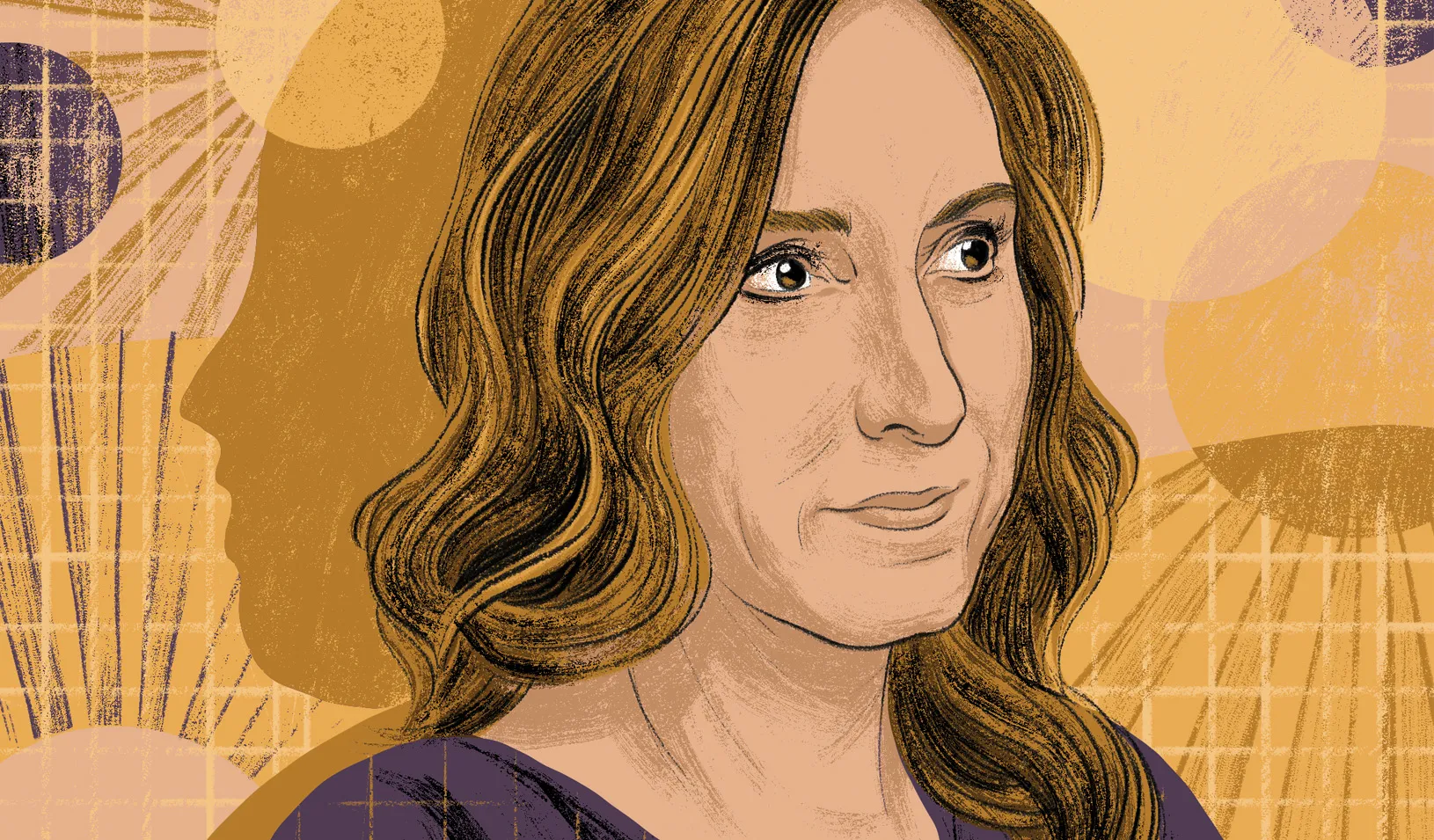
Early detection is a key to treating Alzheimer’s, says Phyllis Ferrell, who oversees 19 pilot programs in 12 countries. | Illustration by Chloe Cushman
The problem: Treatments for Alzheimer’s only work with early detection.
The plan: Systematize testing and diagnosis of the disease beginning at age 55.
Phyllis Ferrell was right where she wanted to be. After earning her MBA from Stanford in 2001, she’d resisted the allure of buzzy dotcom startups in Silicon Valley and returned to her Midwestern roots, taking a job with the pharmaceutical giant Eli Lilly & Company in Indianapolis. There, she had moved swiftly through the ranks, and in 2011 she was named vice president in charge of drug development for Alzheimer’s disease.
Editor’s Note
In this ongoing series, we highlight work by alumni and executive program participants to solve contemporary problems.
It was an awesome responsibility for a 39-year-old. Worldwide, some 50 million people suffer from Alzheimer’s, and with aging populations, that number could triple by 2050. The cost of the disease has been estimated at $1 trillion a year, and the toll on families is incalculable.
And Ferrellopen in new window knew their anguish. A few months earlier, her father-in-law had been diagnosed with Alzheimer’s; six months later, her own father, a business leader whom she adored and tried to emulate, was diagnosed as well. “If you believe in Godwinks, there’s one,” she says.
Her team of more than 300 people worked feverishly to bring three Alzheimer’s drugs to late-stage trials and prepare for commercialization, but it wasn’t to be. By late 2018 all three had failed. As Ferrell puts it stoically, “the molecules did not meet their primary endpoints.”
One problem, she now realizes, was that their trial subjects were too far along. “We’ve learned a lot, and we now know the disease starts in the brain 10 to 20 years before symptoms appear.” However, most doctors don’t diagnose it in patients until dementia has set in.
“These treatments might slow the progress of the disease, but they can’t reverse the damage.” The key is early detection, and some tests already exist — they’re just not being done. “Simply put,” she says, “beating Alzheimer’s is not just a science problem, it’s a system problem.”
Ferrell was promoted to chief commercial officer of Lilly in 2019. But when the company created a new role for a head of external engagement on Alzheimer’s the following year, she saw her opportunity to attack that systemic problem, and she jumped at it.
Her brief in the new job is to forge public-private partnerships that move the whole field ahead. As part of that, she now splits her time as an executive on loan with the Davos Alzheimer’s Collaborative, a new global health initiative launched by the World Economic Forum in 2021.
Modeled on ambitious public health campaigns like Gavi, the Vaccine Alliance, DAC is raising funds and mobilizing nations around the world to accelerate the discovery, testing, and delivery of interventions for Alzheimer’s. That last piece, delivery, often gets short shrift. But as Ferrell says, “You can come up with the greatest innovation in the world; if it doesn’t get to patients, it won’t make a bit of difference.”
Now, as director of Health System Preparedness at DAC, she says her goal is to change how health care systems approach Alzheimer’s. “Most doctors still think of this as a disease ‘caused’ by old age. We need to change that mindset.”
What would success look like? “It’s really pretty simple: We should be treating the brain like every other organ in the body, where it’s part of your annual checkup. Everyone over 55 should be getting cognitive assessments and biomarker tests as part of their annual checkups.”
Making that happen, however, is a colossal undertaking. It means devising protocols, training practitioners, gaining buy-in from insurers and health care systems, establishing billing codes, and so on. “Change comes very hard in health care,” she says.
All of which means Phyllis Ferrell is, once again, right where she wants to be — doing the work that needs to be done and which she feels “designed for.” And she says she’s never been more hopeful.“Our understanding of the underlying pathology has really advanced. The only thing slowing us down now is a lack of urgency for timely and accurate diagnosis. But I truly believe we can end this disease for future generations.”
Already she has 19 pilot programs up and running in 12 countries, focused on early detection. “Once the data is in on those, it’s about sharing information and best practices, changing policy in countries around the world, and ultimately changing practice.”
In the meantime, Ferrell says she’s having a blast building something from the ground up. “It’s funny, but I finally ended up at a startup after all.”
For media inquiries, visit the Newsroom.



